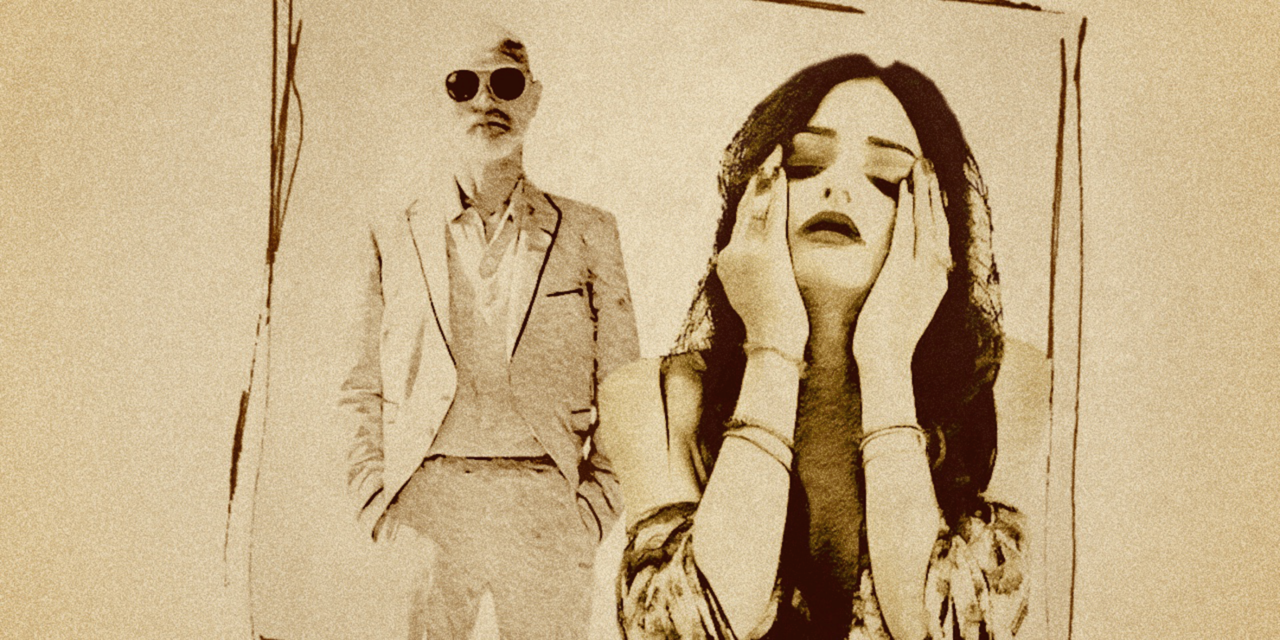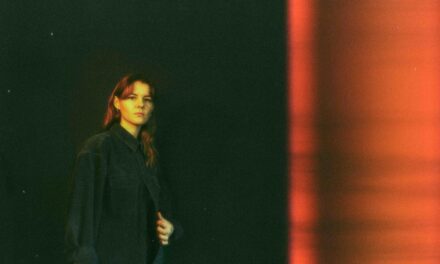Progressive and experimental artist Dark Archer (Jason McDonald) is set to unveil the newest single, “Dreamcatcher”, on November 1st. This emotionally charged track blends bluesy, mellow indie rock influences with lyrical depth, evoking themes of coming of age and the bittersweet beauty of letting go. Dreamcatcher encourages listeners to embrace their individuality and the power of self-discovery.
Drawing inspiration from the avant-garde ballads of The Mars Volta, Jeff Buckley’s emotionally charged vocals, and the timeless influence of The Beatles’ Abbey Road, Dreamcatcher combines intricate musical layers with psychedelic undertones. The result is a song that is both immersive and reflective, showcasing Dark Archer’s signature blend of progressive artistry and raw emotional depth.
In Dreamcatcher, Dark Archer explores the tension between holding on and letting go, inviting listeners into a world where personal evolution becomes not just necessary but liberating. “It’s about the moment you stop holding on to the version of yourself that others expect and start celebrating what makes you unique,” says McDonald. “It’s a song for anyone who’s felt the weight of expectation and the joy of breaking free from it.”
What’s the story behind this track?
Dreamcatcher captures the moment a father realizes he can no longer shape his daughter’s path. Told from her perspective, it’s a story of stepping away from the familiar to chase dreams, reflecting the tension between holding on and letting go. The lyrics convey an understated ache, with imagery that hints at memories and unspoken promises left behind. There’s beauty in the bittersweetness of this journey, where both father and daughter must come to terms with moving forward. As she finds her independence, the song speaks to the universal experience of releasing what we love, even when it feels like letting go of a piece of ourselves.
Any life experiences inspired you to write it?
Dreamcatcher is rooted in my relationship with my daughter. During her early years, we spent a lot of time together, building a close bond that shaped us both. As she’s grown, I’ve had to come to terms with her becoming her own person. Writing from her perspective allowed me to express the mix of pride, wonder, and bittersweetness that comes with watching someone you love step into their own dreams. It’s a song about holding close while learning to let go, capturing those universal themes of independence and self-discovery. I think any parent can relate to that moment when you realize you can’t always protect or guide them—they need to find their own way.
What’s the main message behind it?
At its heart, Dreamcatcher is about the journey toward independence and the beauty in letting go. It explores the tension between protecting what we love and recognizing when it’s time to step back, allowing someone to pursue their own path. Through the lens of a father-daughter relationship, the song captures the delicate balance of holding on while encouraging someone to reach for their dreams. Ultimately, Dreamcatcher reflects the universal experience of growth, both for those stepping out on their own and for those learning to let them go.
Why did you choose Dark Archer as a name?
Dark Archer spoke to me because it reflects the way I view beauty—through the lens of contrast. “Dark” brings a sense of void, a haunting emptiness that’s essential to experiencing beauty at its fullest. Without the shadows, we lose perspective. “Archer” isn’t about archery; it’s about the effort to capture something precisely, like aiming to understand life’s grittier side. Together, Dark Archer is a pursuit of beauty that’s raw and unfiltered, a name that mirrors the aim to capture the world with both its rough edges and its rare clarity.
Who are your favorite artists of all time and why?
The artists I continually come back to are The Mars Volta, Clutch, and Pearl Jam. Listening to The Mars Volta can become an obsession—I’m captivated by Omar Rodríguez-López’s guitar work and the Latin-influenced percussion that adds depth to their layered, intricate song structures. Clutch is pure, hard-hitting rock, and seeing them live is an experience. Neil Fallon’s storytelling and their gritty grooves make their music a lot of fun. Pearl Jam will always be a huge influence for me. They’re the reason I got into music; their raw emotion and fearless approach continue to resonate with me. Honorable mentions include Led Zeppelin, The Who, Deftones, Gojira, Sleater-Kinney, Stereolab, and more recently, St. Vincent for her genre-defying artistry.
What was it like working with The Glacial Drift?
Working with The Glacial Drift was an incredible experience! I joined after meeting Xavier through another project, just as TGD was transitioning from Ecuador to Seattle. Initially, I was recruited for percussion and guitar, diving deep into the rhythms of Fania All Stars and Fela Kuti. When the band’s lineup shifted, Xavier, Hilde, and I embraced new territory together, blending electronic instrumentation with our experimental edge. Much of that album (2020) became a playground for chopped guitar and vocal samples, processed with granular synthesis. It was an inspiring experience that pushed us into fresh, unexpected sounds.
What was the record or song that made you realize you wanted to be an artist in the first place?
Pearl Jam’s No Code was the album that made me want to create music. The band’s decision to move away from the massive popularity of their earlier records to something more introspective and raw really resonated with me. No Code felt bold and personal, like it was challenging expectations while still connecting on a deep level. That album got me through some tough moments, and it taught me how powerful music can be when it’s both vulnerable and fearless. Pearl Jam’s approach showed me what I wanted to aim for as an artist.
What are the main themes of your storytelling and what other topics would you like to explore?
I tend to lean toward rebellion, angst, and the abstract, leaving enough room for listeners to interpret and find their own meaning. I’m also drawn to political sci-fi dystopias—stories like 1984 and Brave New World often influence my work. I love the idea of telling stories that feel like folklore, the kind you’d share around a campfire. That’s something I’d like to explore more, creating music that has a timeless, storytelling feel but still holds a gritty edge.
What inspires your production and writing style?
My creative process is all about staying open to life as it unfolds. I usually start with a loose idea—a drum beat, a lyric, or a guitar riff—but I let the song take shape naturally rather than forcing it. Everyday life is my main source of inspiration. Taking care of my mental and physical well-being, along with enjoying quality time with my family, has unlocked more creativity than chasing technical perfection ever could. Staying present, focusing on “what is” instead of “what could be,” has brought a sense of authenticity to my work that feels true to who I am.
What are your plans for 2025?
Dreamcatcher is just the first single of an LP I’m putting out in spring 2025, and right now, my focus is on getting it all wrapped up. But beyond the album, my goal for 2025 is to build new connections and relationships. As I release this music, I want to invite people in with me to listen and explore. I’ve never been a huge presence on social media, but that’s one area where I want to bring people in. People want a place to belong—I want a place to belong—and I’d love to create that space with my art, somewhere that welcomes you in to participate and relate.





